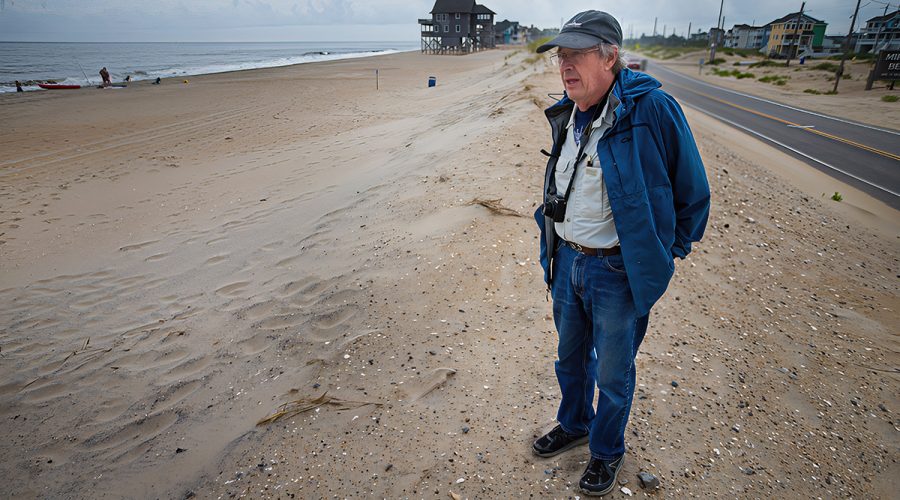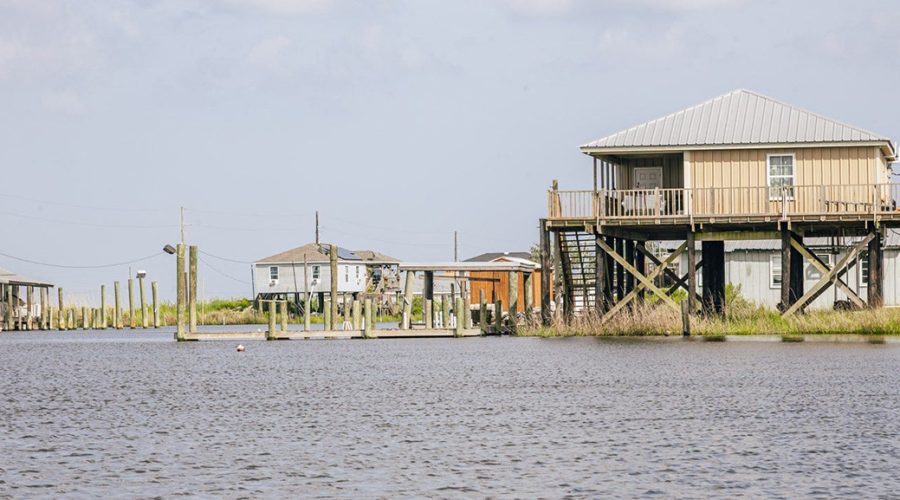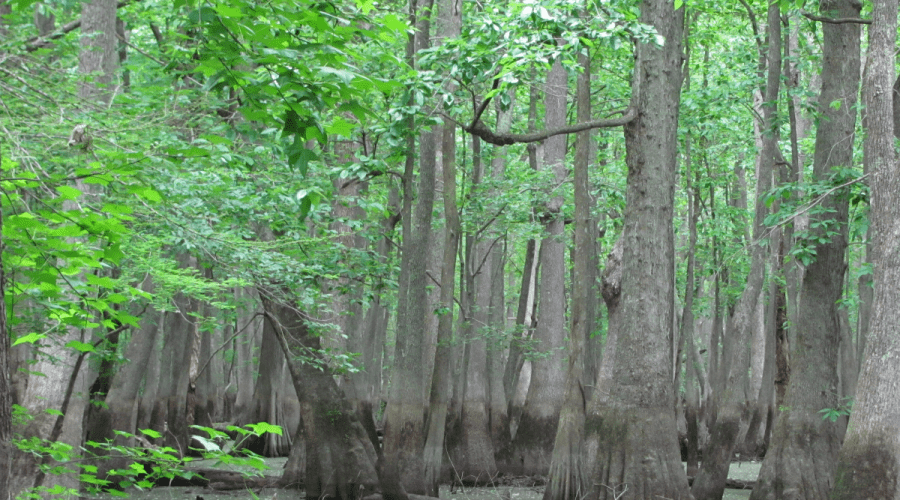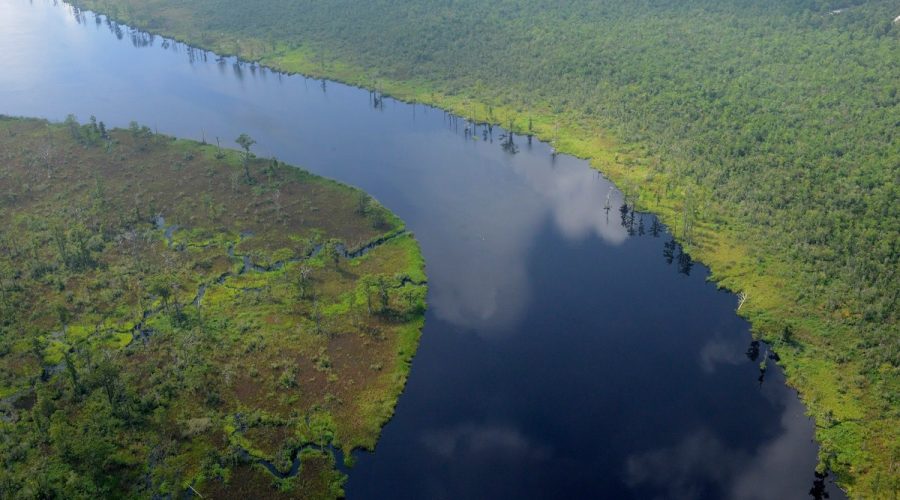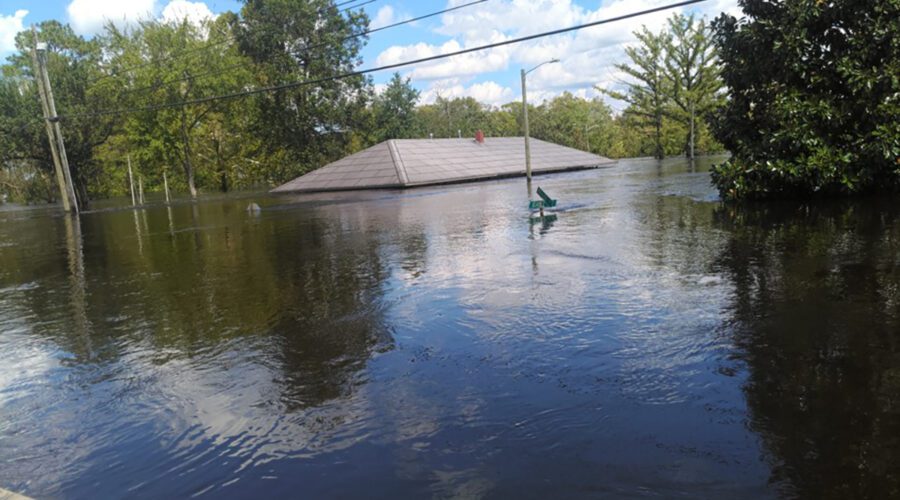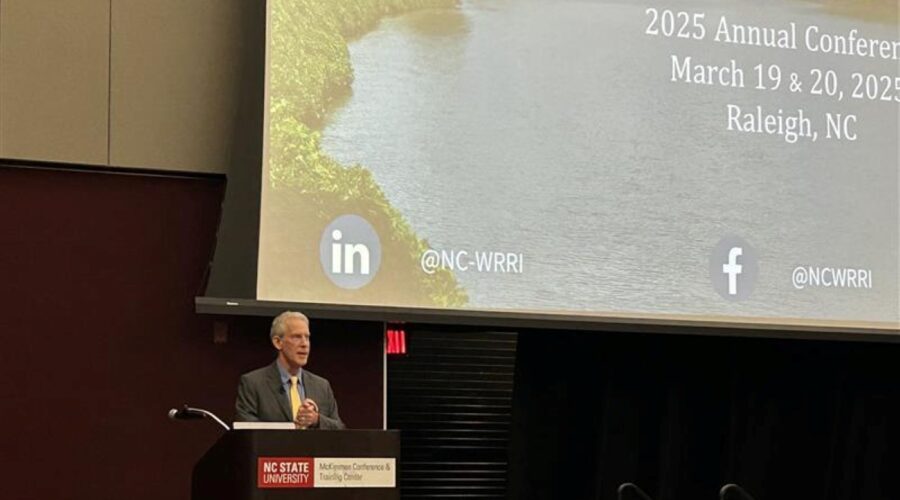“Our hold on this coast is fleeting”: Coastal geologist Stan Riggs shares an excerpt from his new book, “Cape Lookout National Seashore: Paradigm For A Coastal System Ethic.”
Special Reports
Coastal geologist Stan Riggs sets out on 10-book project
“I’ve done a lot of work here,” the East Carolina University professor told Coastal Review, and the book series to be rolled out over three years is a mission to share what he’s learned.
Residents at leading edge of climate crisis see no way to leave
People in southern Louisiana have seen their land disappear at an alarming rate, but for them, like many who live in low-lying areas along the North Carolina coast, “home is more than the building you live in,” and retreat isn’t an option.
Vanishing Bayous: On a boat at ground zero for sea level rise
Second in a series: Folks on Louisiana’s bayous, where Big Oil is really big, know firsthand the perils of sea level rise, and a group of North Carolinians recently visited there looking to start a conversation.
AG Jackson anticipates legal win over pulled federal funding
Attorney General Jeff Jackson, during a tour of Pollocksville Tuesday, said he is confident that courts will remove a block on grant awards from the administration-axed FEMA program for resilient local infrastructure.
Water finds your weakness: Louisiana’s lessons for Down East
Former Coastal Review editor Frank Tursi recently joined Core Sound Museum Director Karen Amspacher and others on a trip to start a conversation with those who live where levees gave way and homes flooded during Hurricane Katrina 20 years ago.
Federal cuts lead to unease for state’s wildlife refuges
Amid dramatic funding cuts, leaders of the nonprofits that support national wildlife refuges in the northeastern part of the state fear what’s ahead for these protected lands.
Proposed state rules on discharges defanged as EPA retreats
The Environmental Protection Agency’s announcement this week that it will rescind and reexamine four expected PFAS rules follows a state Environmental Management Commission committee’s opaque decision stalling proposed surface water rules on three compounds.
Zeldin says PFAS limits may get tougher, downplays layoffs
Environmental Protection Agency Administrator Lee Zeldin told a Senate committee Wednesday that news reports about the EPA weakening PFAS were inaccurate and that the standards could instead get tougher.
Coastal towns awarded resilience grants see funding pulled
The Building Resilient Infrastructure and Communities grants program, known as BRIC, a funding source for communities working to be better prepared for the next flood or weather catastrophe, has been axed as “wasteful” spending, leaving local governments in financial binds.
North Carolina among most successful states for BRIC awards
Since the first applications were accepted for the Building Resilient Infrastructure and Communities grants in 2020, state and local-government officials have been successful applicants.
Chemours, DuPont move to keep court records sealed
Attorneys for Chemours and its predecessor company DuPont have asked a federal judge in a lawsuit brought by Cape Fear area water utilities to keep thousands of documents out of the public eye.
No NC limit on 1,4-dioxane means water customers bear costs
It costs an additional $1-$3 million a year to remove 1,4-dioxane, a likely carcinogen, from drinking water drawn from the Cape Fear River, costs that could be avoided if upstream polluters were required to reduce the amount of the compounds they discharge.
DEQ chief: Emerging compounds ‘top priority’ for state
N.C. Department of Environmental Quality Secretary Reid Wilson said addressing PFAS and other emerging compounds is a top priority during the N.C. Water Resources Research Institute’s annual conference Thursday.
Coastal commission lawyer: CAMA a 50-year ‘balancing act’
Coastal Resources Commission legal counsel Mary Lucasse, speaking during a recent legal symposium in New Bern, said the Coastal Area Management Act balances development and private property rights with protecting natural resources.
Black bears’ resurgence reflects acceptance, economic spur
Conservation efforts and reforestation have allowed the species to rebound in rural northeastern North Carolina, providing a food source for families here and luring “high-net-worth” hunters and visitors.


